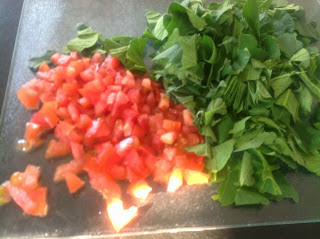The horrors of having someone
wash my car… The nightmare of having an employee fold my towels… The terror of coming home and realizing
someone has washed my dishes… My friends liken it to the pretty girl
complaining about having too many boys interested in her. Nobody wants to hear
about the horrible struggles of having a housekeeper. And yet, let me admit to
you while I hope you attempt to have a teeny bit of sympathy, having staff has
not been easy for this American girl.
Let me begin this discussion with
a little info. Most housekeepers,
nannies, and gardeners in my country are Shona or Ndebele. They are referred to as “staff” or
“domestics” here. But every once in a
while a local white will slip and refer to their staff as “servants” or refer
to an employer as an “owner.” This
chokes me every time. Minimum wage is $90 a month for these positions, though
we have heard oodles of stories in which staff have worked for their negligent
employers for up to a year without being paid.
Most people in these positions are paid somewhere between $100-$150 per
month. Staff that have been with the same employers for a long time have worked
their way up to receiving more than that.
Let me also begin this discussion
I’ve carefully avoided for a year by explaining to you that the last movie my
husband and I watched before moving to Africa was a little thing called, “The
Help.” (If you haven’t seen this, do.)
Arriving in our African country
was like landing in America’s most segregated 1950’s South. Staff are treated in a variety of ways; most
of the time I have to keep my mouth shut and remember that I cannot save the
world or undo someone’s lifetime of racism in a single comment. But I have seen enough to write a sequel to
the movie.
We arrived on the continent
knowing that having staff to upkeep the school-lent house was expected. As energetic do-it-yourselfers, this was
uncomfortable to us. We love to cook and
garden and sew. We call these things hobbies, not work. But we gave ourselves a pep talk on providing
employment for others and started with a gardener and housekeeper.
After a few months, we dismissed
the fulltime housekeeper for about twenty reasons too long to list. To be brief and impersonal, our shipment of furniture had not yet
arrived. She was done cleaning the house thoroughly every day within two
hours. And meanwhile we were on the
verge of bankruptcy because of our botched house sale in the US. Here we were scraping change to pay a
mortgage while I was paying someone to wash my oven daily. She had to go, though I cried a lot over the
move and didn’t rest til we’d found her another position.
I discussed my torturous
trepidations with a variety of others a hundred times over.
Other: “You are employing someone. That’s huge in a country with 95 percent
unemployment.”
Me: “But you’re participating in
a system you find sickening.”
Other: “But at least your staff
have a job. And you treat them far
better than most people.”
Me: “But too many people pat
themselves on the back about that. You meanwhile know they deserve more
money. They’d be horrified if they knew
how much money you’ve made so far in life.”
Other: “With just a few hundred
dollars a month, you are actually supporting more like twenty or thirty people,
as most of their family doesn’t have a job. That’s nothing to feel guilty about.
Besides, you can’t explain things like student loan debt or a US mortgage to
your employees.”
Me: “But I’m still more
privileged despite these debts.”
Other: “It’s all about
perspective. You’re feeling too
guilty. You’re actually less privileged
because of your debts. You’re working
away to repay while we Africans don’t have that hanging over our heads. We just have a clean slate to build from.”
Me: “But you also can’t help but
feel guilty when you tell your staff you wish you could pay them more but
can’t, while you meanwhile spend more on groceries than double their salary.
That feels hypocritical, even when you really seriously can’t pay more.”
Other: “Speaking of hypocritical,
you are paying ‘white people prices’ that support others. You can’t get food or other things as
cheaply. This is one of the most
expensive African countries to live in. Your
staff knows how to live on one hundred dollars a month quite well.”
Me: “Yes, it’s called
malnutrition.”
Other: “No, it’s called
culture. If you paid your staff five
times what you pay them now, they would still eat the same foods.”
Me: “That seems like a big
assumption, that poverty is preferred because it’s part of ‘culture’.”
Other: “They don’t see it as
poverty, though. Besides, you provide some food, housing, medicine, hand-me-downs,
health insurance and electricity. These are things they would not otherwise
have.”
Me: “Ugg. And really I only want to be responsible for
my family! Look at how much more I worry
about with staff. Others’ lives are in
my hands. I can’t even bake someone
cookies with margarine without feeling personally responsible for the injury to
their heart health. I’d rather just worry about finding time to cut the lawn.”
Other: “Yeah, but your time is
worth much more per hour than theirs.
You put a higher value on your time.”
Me: “That sounds like a horribly
aristocratic thing to say.”
Other: “I mean that the time it
takes you to do the dishes yourself in a week is far more precious than just
paying someone a small amount to do what you would charge much more for. Your time with your son is worth a lot.”
Me: “Meanwhile, my child is being
called, “Little Gentleman” by the staff’s children. And he’s watching his
mother tell others how she wants things, even though they live here, too.”
Other: “But you’re supposed to
dictate things. It’s your house.”
Me: “But it doesn’t feel that way
at all when I’m constantly surrounded by others. Yesterday I had four people
working on the house and yard around me as I played outside. The staff’s kids are on my property and need
supervision, so I end up having to play with them. And I didn’t sign up to be a live-in babysitter,
especially when I don’t have the right to tell my staff how to raise their
kids.”
Other: “But you do have the
right. It’s your property. If you want the kids staying in back, they should do
that.”
Me: “While meanwhile my child
gets to hang out with the gardener? That doesn’t seem fair. Don’t you think my
staff would rather be playing with their kids?”
Other: “No, they want to be feeding their kids. Sure, anyone would
kill for the opportunity to have a few years off from housework while their kid
was little. So don’t complain about what you get. But at the same time your husband isn’t getting
to play with his kid. He has to work and
is grateful for his job, just like your staff is.”
The important but painful conversation
left me feeling sick every time. Sometimes it brought out people’s lazy
sides. Or their selfish sides. Or worst, their racist sides. I finally stopped having the conversation out
loud and chewed on it by myself. I
hemmed and hawed for five months. I
tortured myself daily as my child tugged on my pants for attention while I
stood at the sink doing dishes myself. I
debated while I interrupted our baseball game to switch the laundry. I questioned as I stopped reading to my child
to take cookies out of the oven. I
wondered as I ran from Jonas’ bathtub to answer the gate. I pondered over and over, stuck in a muddy
mess somewhere that buried the fine line between my selfishness and guilt, my
privilege and burdensome American debt, my parenting ideals and capability as a
competent independent woman.
After we got our American house
rented and sat back on stable financial ground, the subject of bringing a
housekeeper in came up once again. And
finally we made the decision. Less for
our own mental comfort and more for our staff and child’s physical comforts, we
decided. No one would raise our child
for us. We would never have a nanny. Or anyone who plays with my child while her
own are fending for themselves. Jonas,
while adoring our staff, will not be raised by someone other than his parents,
as so many children in this country are.
Every shoelace that needs to be tied, every nose that needs to be wiped,
every toy that has to be picked up, that’s me.
All me. My job.
But a housekeeper? Oh, alright...
Four months ago we settled on a
half-time housekeeper, Ziwone, who we pay a fulltime salary. And so we live with five other people on our
property, never quite alone. I still do
things like cooking and throwing a load of laundry into the machine. And my child knows who takes care of
him. And that if the housekeeper isn’t
around, I know where the broom is.
I am breathing-in the luxury on
most days. After all, I haven’t washed a
dish in four months. But I’m still
feeling guilty and uncomfortable on other days.
And so the debate continues, most likely until the day we move away…





























